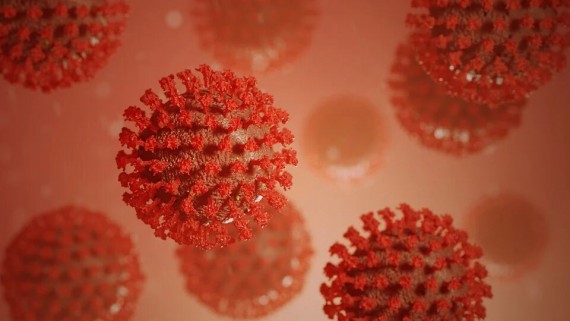 Society
Society
COVID-19 and environment
The current pandemic, for almost a month, took up almost all the space in the media, but also in our concerns and discussions.

It is often during times of disaster like this that you hear people say: I told you so! It was predictable! It would be disappointing for MARE to follow this easy path of prophecy after the fact.. It is true, besides, that it is impossible to make a direct link between the environmental crisis and a single event. for example, it is impossible to say that a hurricane, because it is more powerful than normal, is directly caused by the climate crisis.
However, if there is one thing the international scientific community agrees on, it is on the fact that the environmental crisis will lead to more and more catastrophic moments like the one we are experiencing today.
On s’attend, among others, to more epidemics and more pandemics. Indeed, several links exist between the environment and the risk of pandemics.
- Widespread destruction of natural habitats means that more and more wild species are now coming into contact with human populations, lack of territory. This facilitates the trafficking and consumption of exotic animals and therefore the transmission of viruses to humans., We can take the pangolin as an example, coronavirus natural vector, but whose role in the current pandemic remains uncertain.
- Intensive rearing of animals for human consumption is also a known cause of virus transmission to humans. We destroy many natural habitats – think of the Amazon – in order to grow the food necessary for this type of breeding. Furthermore, the proximity of animals in these artificial environments and regular contact with humans facilitate the transmission of the virus.
- The collapse of biodiversity : we have now entered the 6th wave of mass extinction. The last one had taken place ago 65 million years wiping dinosaurs off the map.


The more an ecosystem has a high number of species, the more difficult it is for an opportunistic species to take up too much space. On the other hand, in an environment poor in biodiversity, some invasive species suddenly have free rein to take up a disproportionate place.

We know little about the microbial component of these ecosystems, but it would be surprising if the logic is not the same. Less biodiversity therefore means more room for certain pathogenic species which do not meet enough competition and can therefore take up too much space.. This likely increases the risk of epidemics and pandemics.
The environmental crisis is therefore responsible for an increase in the number and intensity of disaster moments.
The opposite, Sadly, may also be true! Because all the energy of the states currently seems to be directed towards the fight against the pandemic, the risk of setting aside the environmental emergency is great.
So, the COP 26 which was supposed to bring the governments of the world together in Glasgow in November 2020 to discuss the climate emergency is postponed to 2021.
The Canadian government is currently, in the midst of a health crisis, a public consultation with the aim of eliminating the environmental studies usually necessary in order to speed up offshore oil drilling.

Alberta government announces, during this same crisis, an investment of 1,5 billion dollars in the Keystone XL pipeline project so that more oil from the tar sands can be exported to the United States.
States are therefore trying to revive the myth of the infinite growth of capitalism, undermined by the crisis.
We feel that the environmental emergency, the extent of which governments did not seem to understand before the pandemic, further decline in the list of state priorities. There is thus a risk of creating a vicious circle : if the pandemic makes us forget the environmental emergency, we risk causing more disasters in the coming years, which risks further reducing our environmental efforts.
What can MARE do during this time of crisis???
It is true that we have lost, for the moment, part of our DNA. Indeed, the word Action is part of the name of our movement. It's through action campaigns (concrete cleaning actions, reforestation, work with municipalities, manifestations, …) that the MARE has been built over the past year. It is obviously much more difficult to conduct such campaigns as long as the containment measures last..
Another important part of MARE's DNA, however, is to remember : the objective of creating solid links between individuals and organizations wishing to fight against the environmental crisis.
That’s why we organized the online event of 3 avril and that we continue to invite you to participate in the construction of the MARE during our public meetings, TUESDAYS, which are now done online!
Our goal during this crisis remains the same : we must not fall into catastrophism and give up in the face of the scale of the task and the difficulties. We must be aware of the urgency, then use that knowledge to roll up their sleeves and continue to build a strong and creative action network.







